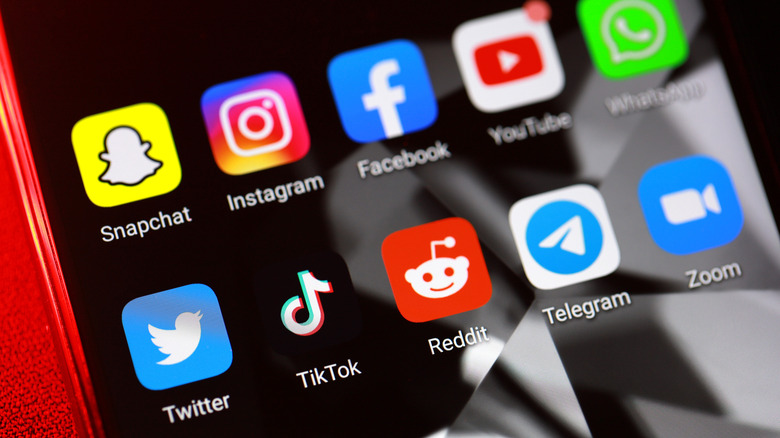Study Ties Increased Social Media Use To Lower Life Satisfaction
Social media has often been associated with the general decline in life satisfaction and happiness, thanks in no part to the unrealistic body standards and extremely materialistic lifestyles that are wildly popular on platforms like Instagram. A fresh study from the Oxford Internet Institute re-asserts that notion and again sheds light on how increased social media usage may impact life satisfaction, especially among teens and young adolescents.
The cross-sectional study, which is titled "Windows of developmental sensitivity to social media," explores the relationship between the duration of social media usage and an individual's sense of satisfaction with how their life is going. Interestingly, the negative impacts of social media manifest at a different age based on the subject's gender. For girls, social media and life satisfaction establish a negative link to each other at ages 11 to 13. For boys, it was found to fall somewhere around the ages of 14 and 15.
The international team of scientists behind the latest research attributes the disparity to the fact that developmental changes related to brain structure and puberty happen earlier in girls than boys. However, the age of 19 was found to be a common link between both genders, as prolonged social media usage triggered a negative life satisfaction sentiment in both cases.
Unchecked social media usage may be risky
The research, which involved approximately 80,000 volunteers between the ages of 10 and 80, was able to establish a link between social media usage and a poorer sense of well-being. The study took into account the results of social media usage one year after starting the assessment, which is good due to the sheer research span, but potentially disadvantageous, as well, because a lot of other factors can affect mental well-being within that span of time.
According to the researchers, users who spent too much time on social media had a generally lower life satisfaction sentiment. On the flip side, those who felt discontented with their lives actually ended up spending more time on social media as a coping mechanism, somewhat like an escape from their less-than-satisfactory lives. This behavior was not linked to a specific gender.
It's important to note that more research is required to break down social media's potential role in the general sense of dissatisfaction with life among different age groups. Moreover, it is still hard to pinpoint the age at which social media has the worst impact on mental health, especially in teens. Beyond that, quantifying social media's impact as a whole has shown mixed results in past research.
A study published in 2006, for example, found an indirect link between the frequency of social media usage and self-esteem, but researchers with the University of British Columbia report the pattern of social media usage is what ultimately decides its impact on our lives. With that said, social media can offer some benefits, too, at least according to Harvard.

